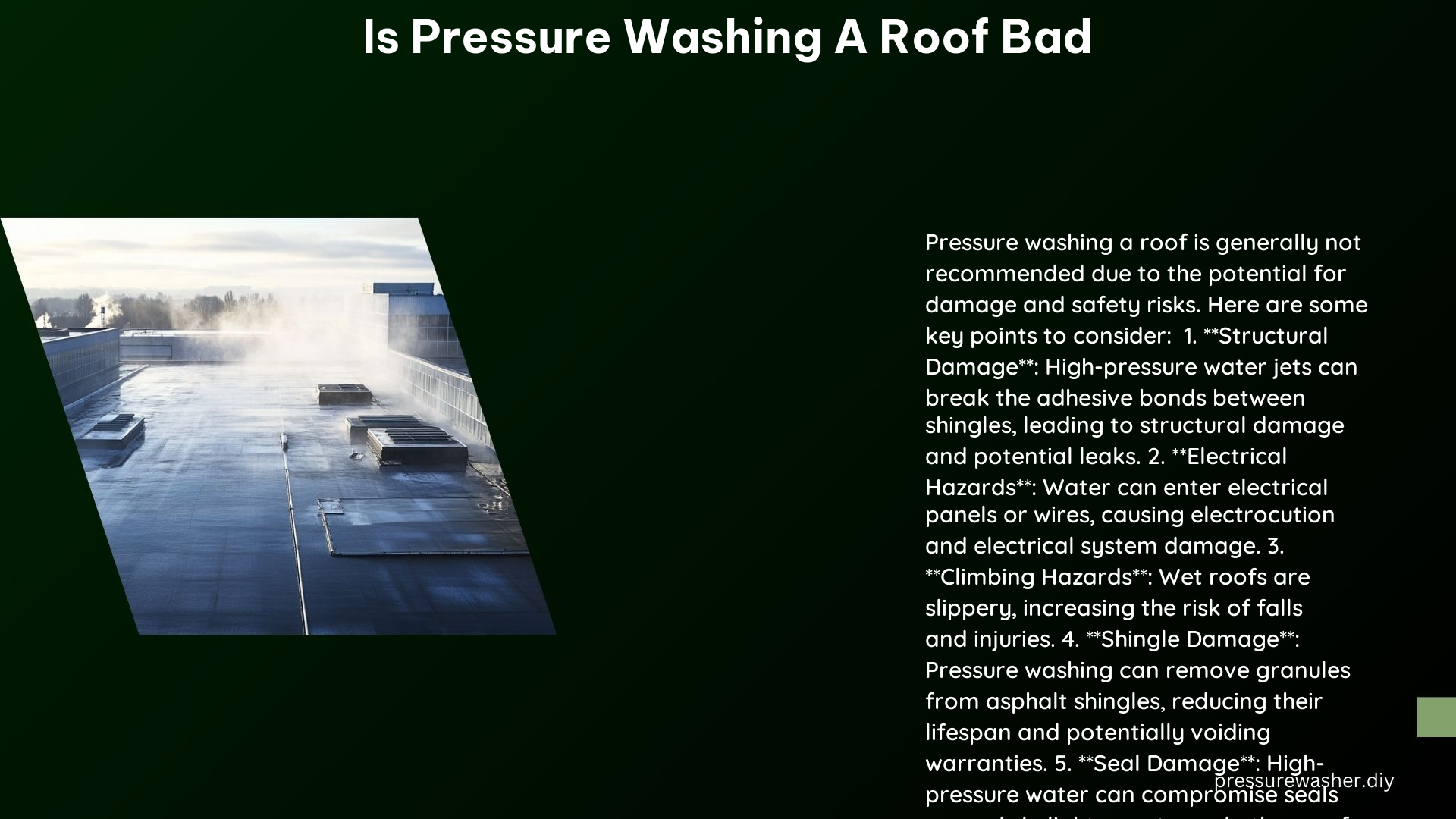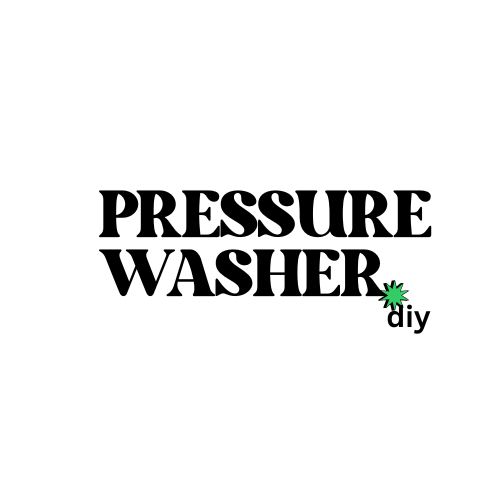Pressure washing a roof can be a tempting solution for homeowners looking to clean and maintain their roofs. However, this method can be detrimental to the roof’s integrity and longevity. In this comprehensive guide, we will explore the key reasons why pressure washing a roof is generally not recommended, and provide alternative methods to safely and effectively clean your roof.
Damage to Shingles
Pressure washing can be particularly harmful to asphalt shingles, which are the most common roofing material. The high-pressure water jets can remove parts of the shingles, reducing their expected lifespan. This can also affect the adhesive between the shingles and the underlayment below, leading to leaks and water damage. Asphalt shingles are designed to withstand natural weathering, but the intense pressure of a power washer can compromise their protective granules and cause premature deterioration.
| Shingle Type | Recommended Pressure (PSI) |
|---|---|
| Asphalt | Less than 1,200 PSI |
| Tile | Less than 500 PSI |
| Metal | Less than 1,500 PSI |
| Slate | Less than 500 PSI |
Exceeding these pressure limits can result in significant damage to the shingles, reducing their lifespan and compromising the overall roof system.
Seal Damage

Pressure washing can also damage the seals around critical roof components, such as skylights, vents, and chimneys. These seals are designed to prevent water intrusion, and any damage caused by pressure washing can lead to leaks and water damage. Compromised seals can allow moisture to penetrate the roof system, leading to mold, mildew, and structural issues.
Warranty Voidance
Many roofing manufacturers explicitly state in their warranties that pressure washing is not an approved cleaning method. Using this technique can void the warranty, leaving homeowners responsible for any future repairs or replacements that may be necessary due to the damage caused by pressure washing.
Structural and Electrical Damage
The high-pressure water jets used in pressure washing can cause cracks or breaks in tile, slate, or metal roofing materials. This can compromise the structural integrity of the roof and lead to leaks and water damage. Additionally, the water can penetrate electrical components, such as wiring or junction boxes, creating safety hazards and potential fire risks.
Climbing Hazards
Cleaning a roof, especially when it is wet, can be a dangerous task. The risk of falling off the roof is significantly increased, and homeowners should avoid attempting this task themselves unless they have the proper safety equipment and training.
Alternative Cleaning Methods
Instead of pressure washing, there are several alternative methods that can be used to safely and effectively clean a roof:
-
Soft Washing: This technique uses a low-pressure wash (typically less than 500 PSI) combined with specialized cleaning agents to remove dirt, grime, and organic growth without damaging the roof.
-
Leaf Blowers and Gentle Hosing: Using a leaf blower to remove debris, followed by a gentle hosing, can clean the roof without the risk of shingle or seal damage.
-
Professional Assistance: Hiring a professional roof cleaning service that uses safe and effective methods, such as soft washing or manual scrubbing, can ensure the roof is cleaned without compromising its integrity.
Conclusion
Pressure washing a roof is generally not recommended due to the significant risks of damage to the shingles, seals, and overall roof structure. Instead, homeowners should consider alternative cleaning methods, such as soft washing or gentle hosing, or seek the assistance of professional roof cleaning services to maintain the longevity and performance of their roof.
References:
- https://www.spirit1053.com/blog/roofing-101-dont-pressure-wash-your-roof/
- https://www.trottaspowerwashing.com/blog/power-washing-my-roof-is-it-a-necessity/
- https://www.reddit.com/r/pressurewashing/comments/12527wf/pressure_washing_roofs/
- https://www.familyhandyman.com/article/should-i-pressure-wash-my-roof/
- https://www.windowgenie.com/blog/why-you-should-never-pressure-wash-your-roof/
